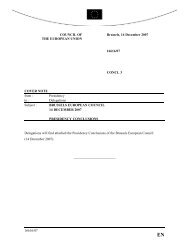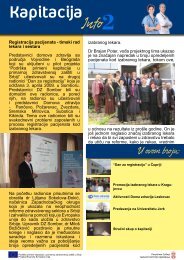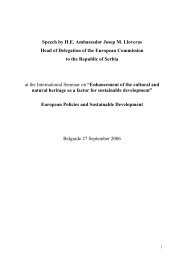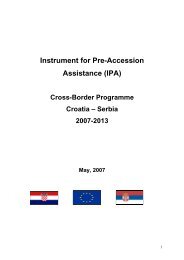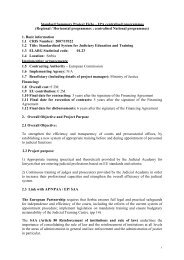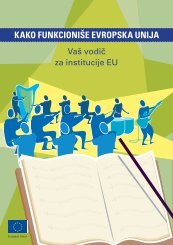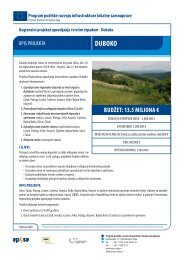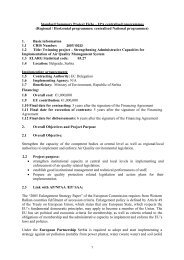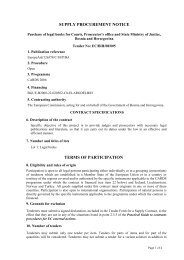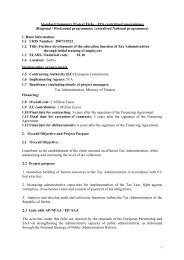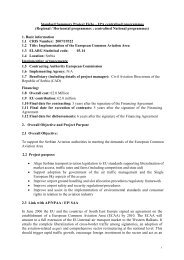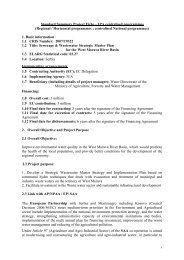YOUR SCHOLARSHIP IN EUROPE
YOUR SCHOLARSHIP IN EUROPE
YOUR SCHOLARSHIP IN EUROPE
Create successful ePaper yourself
Turn your PDF publications into a flip-book with our unique Google optimized e-Paper software.
90<br />
Your Scholarship in Europe 2008-2009<br />
Ireland<br />
Basic Information about Ireland<br />
Ireland (Éire in the Irish language) is situated in the extreme north-west of Europe<br />
between the Atlantic Ocean and the Irish Sea. The island of Ireland has a large central<br />
lowland with a relief of hills and several coastal mountains and consists of 32 counties,<br />
the six of which to the north-east make up Northern Ireland, part of the United Kingdom.<br />
The capital of Ireland is Dublin, and St. Patrick’s Day, 17 March, is the National Holiday.<br />
Ireland has a population of approximately 4.1 million and two offi cial languages, Irish<br />
and English. The language of instruction in schools is English. Ireland is a two-house<br />
parliamentary democracy with an elected President as Head of State.<br />
The Higher Education System<br />
The Irish higher education system was traditionally divided into three basic levels: primary<br />
(8 years), secondary (5 or 6 years) and third level, which offers a wide range of<br />
opportunities from post-secondary courses to vocational and technical training, as well<br />
as full degrees and the highest post-graduate levels.<br />
The higher education system in Ireland is broad in scope and encompasses the university<br />
sector, the technology sector, education colleges and private, independent colleges.<br />
The institutions falling within the fi rst three groupings are autonomous and self<br />
governing, but substantially state-funded.<br />
Admission to higher education for Irish students is competitive and based upon performance<br />
in the fi nal secondary school examination, the Leaving Certifi cate. Admission requirements<br />
for overseas students are determined individually by each institution and are generally<br />
based on performance in national examinations and English language aptitude.<br />
The following academic awards can be acquired at Irish higher education institutions:<br />
• Higher Certifi cate: Two-year, full-time course.<br />
• Ordinary Bachelors Degree: Three-year, full-time course.<br />
• Honours Bachelors Degree: Normally a three- or four-year course.<br />
• Graduate Diploma: Designed for graduates seeking vocational reorientation –<br />
usually a one-year course.<br />
• Masters Degree: Either by research or through a programme of teaching. Normally<br />
one or two years in duration.<br />
• Doctorate (PhD): Usually takes a minimum of three years of original research.<br />
The academic year typically runs from September to June and is divided into either two<br />
or three semesters with holidays in December (Christmas) and April (Easter).



